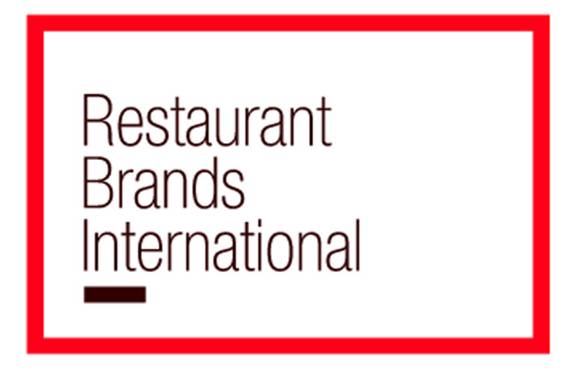After the acquisition of Canadian National Coffee Tim Hortons, the business of joining the store owner was oppressed.
More than 50 years ago, Canadian hockey legend Tim Horton founded the chain of coffee and doughnuts after himself. In the earliest days, the price of coffee and pastries was set at 10 cents each. Today, the coffee shop, which customers call "Tims", has about 4600 stores around the world. In North America, Tim Hortons can be seen everywhere, whether in shopping malls, highway entrances, universities, hospitals, etc., and many 24-hour shops have been set up.

In 2014, Canada's largest local fast food chain was acquired by US fast food chain Burger King for US $11.4 billion (C $12.5 billion) and merged into a new group Restaurant Brands International Inc (TSE: QSP.UN). The group is headquartered in Oakville, Ontario, Canada, and Burger King and Tim Hortons will retain their respective trademarks. It is worth mentioning that Warren Buffett, an American investor, played a key role in the deal, financing the deal with $3 billion of preferred stock he bought.
After the acquisition, Tim Hortons became the main force in RBI's revenue. RBI's main revenue surged last year, with more than 70 per cent of it coming from raw materials, equipment, rent (nearly 10 per cent of store sales) and royalties (3 per cent of store sales) paid by Tim Hortons franchisees.
But on June 19th Great White North Franchisee Association (GWNFA), an association of owners of Tim Hortons franchises, filed a class action against RBI, the new owner of the coffee chain, for mismanagement and filed a C $500m claim. The group is an association set up by half of Canada's Tim Hortons franchisees in March to express their protest.
The complaint from GWNFA against RBI, the parent company of Tim Hortons, includes the following:
Higher costs, lower quality, more shortages
RBI acquired Tim Hortons in 2014, and the biggest supporter of the deal is its shareholder, Brazilian investment company 3G Capital. The investment company is known for pursuing mandatory acquisitions and implementing management that significantly reduces costs.
RBI's revenue from TM includes not only franchise fees and rent, but also income from the sale of various raw materials and supplies to franchisees. But after RBI took over TM, RBI all raised prices to charge more fees for franchisees.
"when TH was taken over by RBI, I was told that the operation would be business as usual," said Wade MacCallum, who owns six Tim Hortons in Canada. But in fact, 3G business model is based on cost-cutting, it has completely changed the Tim Hortons. "
Tim Gilks, who used to run Tim Hortons, says RBI is charging each Tim Hortons chain about C $13750 a year for coffee costs. Although the cost of raw materials in the market has risen, the increase in the company's fees is much higher than the increase in the price of the raw materials themselves, while the quality of the raw materials is worse than before, he said.
Tim Hortons franchisees say they have to cut jobs to cut costs because of higher prices at the parent company. Even some franchisees have to turn to COSTCO to buy some raw materials and appliances (for example, sugar, knives and scissors, etc.) because RBI charges more.
David Hughes, which owns five TimHortons stores in southern Alberta, said customers were also aware of the change, especially the rise in menu prices. The cost of coffee cups is C $0.02 more than before, which doesn't sound like much, but even the slightest price increase can be found for customers who are used to drinking coffee.
The plaintiffs in the class action claim that RBI raised the operating costs of the chain stores but refused to let them raise prices the same. In addition, at the same time, because there is only a single source of supply, many raw materials or appliances are often out of stock. Some franchisees complained: "the last time we were short of ingredients was burritos, we couldn't sell sandwiches for three or four days, so we might as well just close the door!" Tim Hortons franchisees believe that this is touching their bottom line, because it not only increases operating costs, but also leads to customer loss.
Extreme testing standards
According to the Global Times, it is difficult for Tim Hortons franchisees to pass the standard tests set by its parent company. RBI has set up a global performance appraisal system (Global Performance System, referred to as GPS) to test the operational performance of franchisees.
GWNFA made it clear on its website that the standard was "completely impossible". The test standard not only details the number of transactions, drive-thru service speed and other service requirements, but also requires the storefront to use some supplies that are often out of stock by the parent company and some flashy cleaning equipment. In addition, the GPS standard even requires the mouse traps in the store to be placed in the direction.
Before January, 15 per cent of TM stores failed a global performance appraisal system (GlobalPerformance System) test set by the parent company, and 69 per cent failed the following month. In March, 85% of stores failed in the test.
To add salt to the wound, the stingy 3G management has laid off a lot of talented people who could have improved the restaurant, franchisees say. GWNFA said: "the standard does not take into account the differences between stores, such as some stores may not have enough staff, the size of each store is different, or the distance from one port to the pick-up order is different for different stores."
Fictitious number
In addition to the stringent GPS standards, another "stringent" standard to be adopted by franchisees is for data on profit and loss statements. According to the report of Grant's, the franchisee said that RBI would reject the low price report.
According to an anonymous online survey of franchisees in Alberta, the average operating profit margin of all 129 franchisees is only 6.29%, which is much lower than the operating profit margin of Tim Hortons chain stores declared by the head office, which is generally around 13%. 14%. In order to avoid trouble and meet the qualification for expansion, some franchisees even choose to make up numbers. In response to this problem, RBI's attitude is: "these are the data reported by the store itself, and we are not responsible for it."
Misappropriation of funds
According to the contract signed by the franchisee, Tim Hortons stores are required to submit 3.5 per cent of their annual net sales for the marketing of Tim Hortons's brand, also known as advertising funds.
In the lawsuit, GWNFA accused the parent company of abusing the huge advertising fund paid by the franchisee. Since RBI acquired TimHortons, franchisees in Canada have paid a total of C $700 million in advertising funds. But parent company RBI has never said how to use the fund, and franchisees believe that RBI misappropriated some of the money for other purposes, which is tantamount to harming their interests.
Evan Lorenz, a reporter with Grant's who has been tracking the incident, said that although it could not be proved that RBI misappropriated some of the funds for other purposes, it is worth noting that in the first quarter of 2017, Tim Hortons's corporate management fee expenditure rose to $2.51 million (3.4% of sales), an increase of 55% over the same period last year, and the increase began after franchisees quarreled with RBI over advertising funds.
Image damage
Franchisees say that this is not only hurting their interests, RBI is also damaging Tim Hortons's image in Canada.
Because the fund is mainly used to support community activities such as hockey, children's camps, swimming days and local barbecues, in order to establish a good community image of Tim Hortons. David Hughess, director of GWNFA, said: "Tim Hortons has grown up with three or four generations and has been involved in community activities. But RBI is not interested in maintaining the image of our brand. You know, Tim Hortons is different from other food chains because of what we do to the local community. "
Franchisees believe that RBI's squeeze of franchise stores is destroying Tim Hortons's good image and forcing them to reduce their support for community activities.
Last month, GNWFA announced that about half of all Tim Hortons shopkeepers in the United States had joined the lawsuit. David Hughes, chairman of GWNFA, said: "We can no longer provide the same services as before. RBI has turned Tim Hortons into a pure profit center."
Lack of transparency and apathetic response
At the same time, franchisees said another reason for launching the lawsuit was the parent company's lack of transparency and unwillingness to respond directly to their questions.
Last year, management disclosed important data for analyzing the company's growth rate, such as same-store sales growth, total sales growth and the number of franchise stores. But in this year's report, RBI only reported same-store sales in some prosperous areas of its food chains, not all stores and all indicators. For example, only Canadian same-store sales were reported in the first-quarter results.
Some members of the GWNFA Association have been trying to contact RBI about these issues for months, but have not received a response. Some members raised these questions in a meeting with RBI management, but were refused to answer them on the spot. When the association formally sent a letter to RBI's lawyer, the parent company began to respond to the franchisee.
The defendants in the lawsuit are Tim Hortons and RBI, as well as executives Elias Diaz Sese and DanielSchwartz of the two companies. "We strongly deny all accusations against our business and brand, and we remain committed to working with store owners to ensure that the Tim Hortons brand continues to be strong in the future," RBI said in a subsequent statement. In addition, at the end of March, the company apologized for not listening carefully to the views of the franchisee in the past two years, but did not make any practical and effective improvement.
RBI is besieged on all sides.
RBI's revenue growth comes mainly from new stores, and it is working to push TM into other global markets, such as Europe and Southeast Asia. However, due to the existence of cultural differences, it is still doubtful whether TIM can be loved by the locals.
In addition, Bill Ackman, the investment mogul, sold 10 million shares of Restaurant Brands Internationals at a price of $61 in a recent portfolio adjustment, a 17% reduction. After that, Bill Ackman held 14% of the company's outstanding shares. But as the fund is about to be redeemed, Bill Ackman needs to clear some positions, so it is possible to sell Restaurant Brands Internationals (QSR) further.
Conclusion: RBI should turn the tide.
Sea Whale financial analysts believe that RBI should be aware of the seriousness of the situation from the beginning, rather than blindly pursuing interests without considering the reality. You know, the total sales of all Tim Hortons franchise stores in the year to the end of March were $65, accounting for 23% of the sales of all RBI chain stores. In addition, Tim contributed $1.1 billion to RBI's earnings before tax, interest, depreciation and amortisation (EBITDA), equivalent to 55 per cent of RBI's EBITDA from Tim Hortons, well ahead of its two other food brands, Burger King and Popeyes.
So if something goes wrong with Tim Hortons, then RBI is in jeopardy. From the data analysis, the growth of Burger King and Popeyes can never compensate for the lack of Tim Hortons.
Recently, there are signs that Tim Hortons's income is slowing. Tim Hortons's same-store sales fell 0.2% last quarter, which was not in line with analysts' forecasts.
In addition, the Tim Hortons operating margin reflected at the company's reporting level has soared from less than 14% when 3G Capital took over to a very high level of nearly 24% in the first quarter of 2017. Just as no number can rise to the sky, it will be tested whether this level of interest rates can continue to rise, or at least maintain its current level.
On July 24th, RBI will release its new quarterly results, and it will be determined whether Tim Hortons's sales are in a growth trend.
Important Notice :
前街咖啡 FrontStreet Coffee has moved to new addredd:
FrontStreet Coffee Address: 315,Donghua East Road,GuangZhou
Tel:020 38364473
- Prev

How much do Americans love coffee?
Following caf é comments (Wechat official account vdailycom) found that Beautiful Cafe opened a small shop of its own. According to the 2017 Coffee consumption trend Survey report of the National Coffee Association, although tea ranks first in total sales and popularity in the world, coffee is still the drink of choice for Americans in the United States. The rise of coffee in the United States dates back to the War of Independence.
- Next

What is boutique coffee? What's so special about boutique coffee?
Following Cafe Review (Wechat official account vdailycom) found that Beautiful Cafe opened a small shop of its own. People often ask: what is boutique coffee? What's the difference between fine coffee and ordinary coffee? What's so special about it? Generally speaking, the so-called boutique coffee is a cup of coffee with good flavor characteristics. Some coffee available on the market
Related
- The ceremony is full! Starbucks starts to cut the ribbon at a complimentary coffee station?!
- A whole Michelin meal?! Lucky launches the new "Small Butter Apple Crispy Latte"
- Three tips for adjusting espresso on rainy days! Quickly find the right water temperature, powder, and grinding ratio for espresso!
- How much hot water does it take to brew hanging ear coffee? How does it taste best? Can hot water from the water dispenser be used to make ear drip coffee?
- What grade does Jamaica Blue Mountain No. 1 coffee belong to and how to drink it better? What is the highest grade of Blue Mountain coffee for coffee aristocrats?
- What are the flavor characteristics of the world-famous coffee Blue Mountain No. 1 Golden Mantelin? What are the characteristics of deep-roasted bitter coffee?
- Can I make coffee a second time in an Italian hand-brewed mocha pot? Why can't coffee be brewed several times like tea leaves?
- Hand-brewed coffee flows with a knife and a tornado. How to brew it? What is the proportion of grinding water and water temperature divided into?
- What is the difference between Indonesian Sumatra Mantinin coffee and gold Mantinin? How to distinguish between real and fake golden Mantelin coffee?
- What does bypass mean in coffee? Why can hand-brewed coffee and water make it better?

